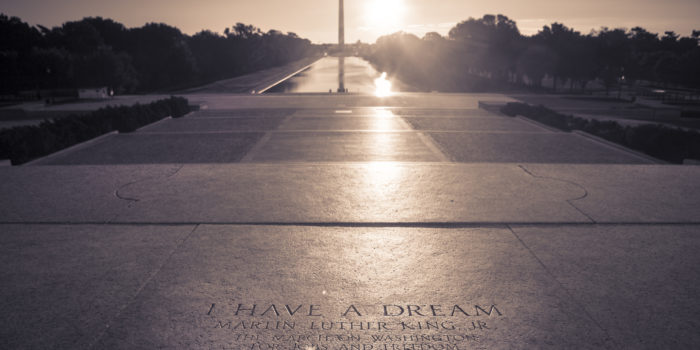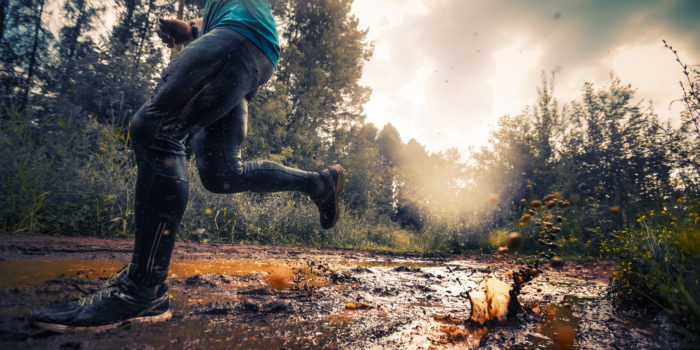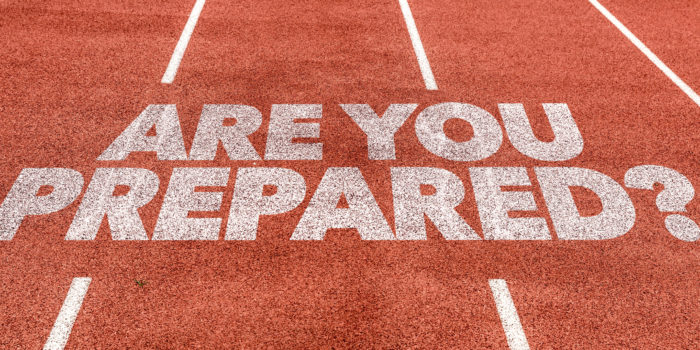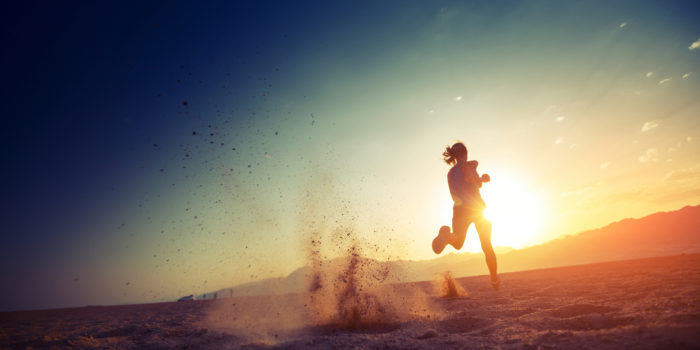Popular running culture tends to reflect the beliefs and priorities of the era that generates it.

Invoking the Vision of Dr. Martin Luther King Jr.
Our scientific power has outrun our spiritual power. We have guided missiles and misguided men. – MLK
Millions of people around the world regard New Year’s Day as a time to take stock of their lives and to make “resolutions” to get back on track with their life goals. But experts suggest that our resolutions are more likely to stick if they are made on a day that is personally meaningful to us.
An anniversary commemorating the birth or death of a loved one can be a good choice. I prefer to steer clear of the New Year’s hype by waiting until the third Monday of January, Martin Luther King Day, which often coincides with my wife’s birthday. For me, this has become a worthy occasion to renew my commitment to a healthy lifestyle and to set realistic personal goals for the year.
A Remembrance Run for MLK
Dr. King was born on January 15th, 1929. On April 4th, 1968, he was assassinated at the Lorraine Motel in Memphis, Tennessee. He was just 39 years old. While Dr. King is primarily remembered as a civil rights leader, he also championed the cause of the poor, organizing the Poor People’s Campaign to address issues of economic justice. Dr. King was also a fierce critic of U.S. foreign policy during the Vietnam War.
On certain runs these days, I make it a point to actively remember Dr. King’s life work, a body of teachings that are profoundly relevant to the world situation we face today. Before I lace up and hit the trails, I take a deep breath in remembrance of MLK, a true challenger who used his strength to improve other’s lives, becoming an inspiration to millions. On his 90th birthday, I find myself wondering what would the world look like if he were still alive?
I do these runs alone. I dedicate them to remembering my childhood beliefs and aspirations. It was growing up in suburban Los Angeles during the era of forced busing (the practice of transporting students to racially segregated schools) that grounded my lifelong belief in civil and human rights.
Once I’ve cleared out my surface thoughts and emotions, I make a conscious shift: rather than expecting to relieve my stress or hoping to build my esteem on this run, I dive right into the heart of my life’s questions:
How am I living? Would I like to be remembered for making a difference in other people’s lives? What would I like others to be able to say about how I helped people?
By choosing to concentrate on his ideas of freedom, justice, and equality during my run, I am making a firm internal statement:
I believe in civil rights and human rights for all.
Dr. King as Sports Psychologist
There was a time when I was rigid and exacting with my training, much more narrowly focused and future-oriented. I took pride in mapping out my whole running year like an Olympic athlete. Adhering to a strict schedule and holding myself to such meticulous standards eventually presented problems for me. I became overly focused on outcomes and ego-driven goals. I compared my performance with the other 100K and 100 milers in my peer group. Final results were all that mattered to me. I measured my success entirely by my finishing time and how high I placed among my fellow competitors. Sometimes I would get so tight because of long-term planning and expectations that I would feel completely pressurized.
Dr. King’s ceaseless example and his determination to leave a legacy of serving humanity reminded me to turn my attention outward, from self-concern to the welfare of others.
I would still compete hard but not “too hard.” Slowly but surely, I became less concerned with looking good, final outcomes, beating my previous times or another person. My love of helping other runners surpass their personal goals eclipsed my identification with winning and losing.
I’m much looser now, and much happier because of it. I put greater emphasis on life skills and qualities that complement good running in everyone, like diet, meditation, rest and kindness. When I inevitably experience lapses in motivation, I make an extra effort to change my routine, try a new workout, seek out the company of other people or venture into the unexplored countryside.
In terms of the bigger picture, MLK still helps me find my zone. Even in these troubled political times, peace, love and sanity predominate in my running and in my life.
My hope is that those of us who are still inspired by Dr. King’s work will continue to use their running as a vehicle to act more generously and ethically in the world and feel a deeper connection to other people and the planet.
“The Drum Major Instinct”
In one of Dr. Kings most cited works he spoke these words:
Deep down within all of us is an instinct. It’s a kind of drum major instinct — a desire to be out front, a desire to lead the parade, a desire to be first. And it is something that runs the whole gamut of life.
So before we condemn anyone else for it, let us see that we all have it. We all want to be important, to surpass others, to achieve distinction, to lead the parade… this quest for recognition, this desire for attention, this desire for distinction is the basic impulse… the basic drive of human life.



